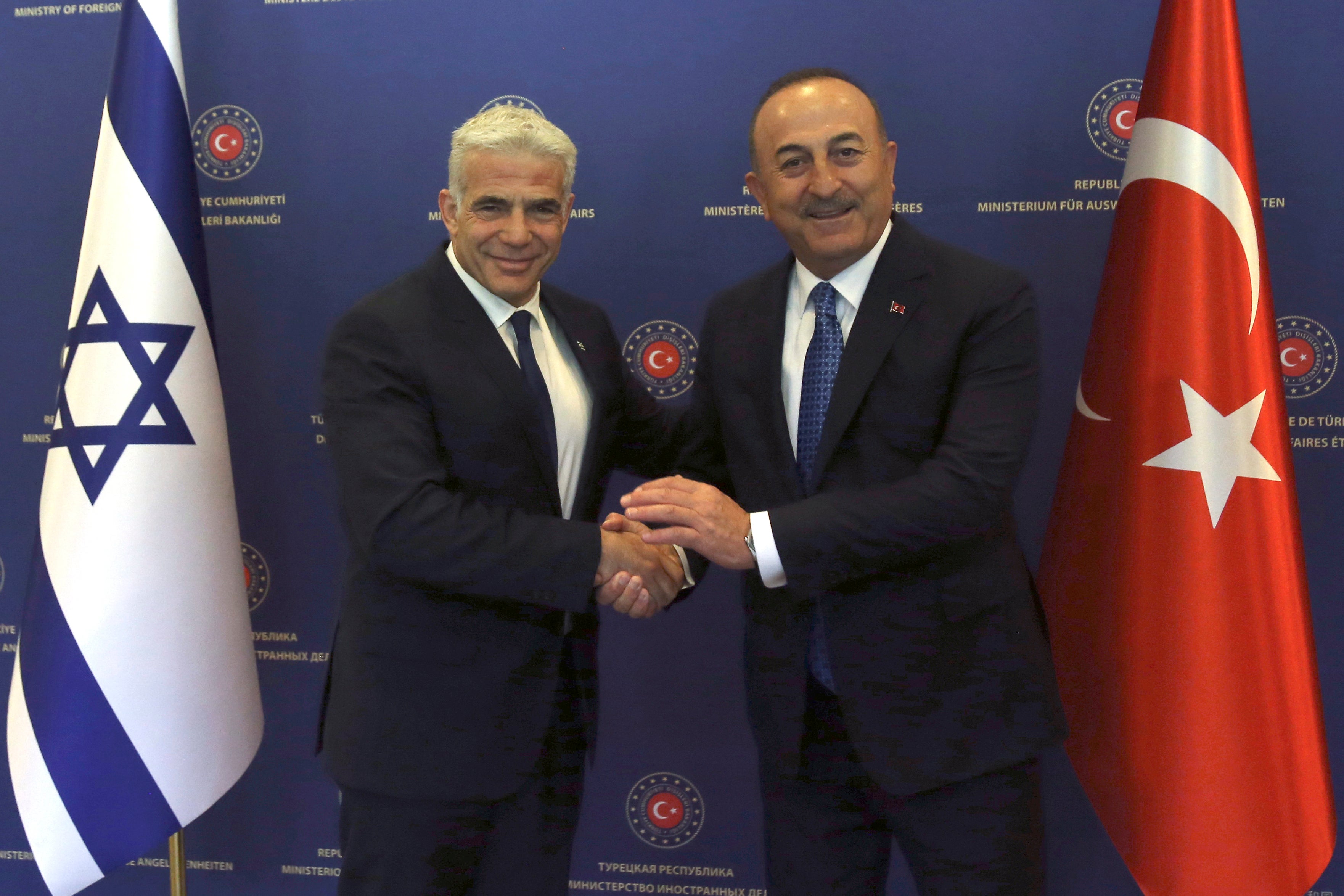Israel, Turkey to exchange ambassadors in diplomatic reset
Israel and Turkey will restore full diplomatic relations and dispatch ambassadors for the first time in years, the latest step in months of reconciliation between the two countries

Your support helps us to tell the story
From reproductive rights to climate change to Big Tech, The Independent is on the ground when the story is developing. Whether it's investigating the financials of Elon Musk's pro-Trump PAC or producing our latest documentary, 'The A Word', which shines a light on the American women fighting for reproductive rights, we know how important it is to parse out the facts from the messaging.
At such a critical moment in US history, we need reporters on the ground. Your donation allows us to keep sending journalists to speak to both sides of the story.
The Independent is trusted by Americans across the entire political spectrum. And unlike many other quality news outlets, we choose not to lock Americans out of our reporting and analysis with paywalls. We believe quality journalism should be available to everyone, paid for by those who can afford it.
Your support makes all the difference.Israel and Turkey will restore full diplomatic relations and dispatch ambassadors for the first time in years, the latest step in months of reconciliation between the two countries, the Israeli prime minister's office said Wednesday.
The two countries, once friendly, had a more than decadelong falling out, but earlier this year Israel and Turkey began a process of rapprochement.
“The resumption of relations with (Turkey) is an important asset for regional stability and very important economic news for the citizens of Israel," said Israel's caretaker prime minister, Yair Lapid.
Once warm relations between Israel and Turkey disintegrated under Turkish President Recep Tayyip Erdogan, who has been an outspoken critic of Israel's policies toward the Palestinians. Israel, in turn, has objected to Turkey's embrace of the Palestinian militant group Hamas, which rules the Gaza Strip.
The countries withdrew their respective ambassadors in 2010, after Israeli forces stormed a Gaza-bound flotilla carrying humanitarian aid for Palestinians that broke an Israeli blockade. The incident resulted in the deaths of nine Turkish activists.
Following an attempt at mending ties, Turkey recalled its ambassador in 2018 after the United States moved its embassy in Israel to Jerusalem.
Israel captured east Jerusalem, along with the West Bank and Gaza Strip, in the 1967 Mideast war. It later annexed east Jerusalem, a move unrecognized by most countries, which maintain their embassies in the coastal metropolis of Tel Aviv. The Palestinians seek east Jerusalem as capital of a future state.
Turkish Foreign Minister Mevlut Cavusoglu confirmed the decision to reappoint ambassadors and said Ankara would be sending its ambassador to Tel Aviv. He said however, that Turkey would continue to support the Palestinians despite the normalization process with Israel.
“A dialogue process began with Israel after the new government took office," Cavusoglu told reporters. “The appointment of ambassadors was among the steps we said we would take to normalize relations.”
“We will continue to defend the rights of Palestine, Jerusalem and Gaza," he added.
Turkey, beset by economic troubles, has been trying to end its international isolation by normalizing ties with several countries in the Mideast, including Egypt, the United Arab Emirates and Saudi Arabia.
Earlier this year, Lapid visited Ankara in June, a month after his Turkish counterpart visited Jerusalem, the first high-level visit by a Turkish official in 15 years. In March, Israel's figurehead president, Isaac Herzog, met with Erdogan in the Turkish capital.
“Upgrading relations will contribute to deepening ties between the two peoples, expanding economic, trade, and cultural ties, and strengthening regional stability,” the Lapid's office said in a statement.